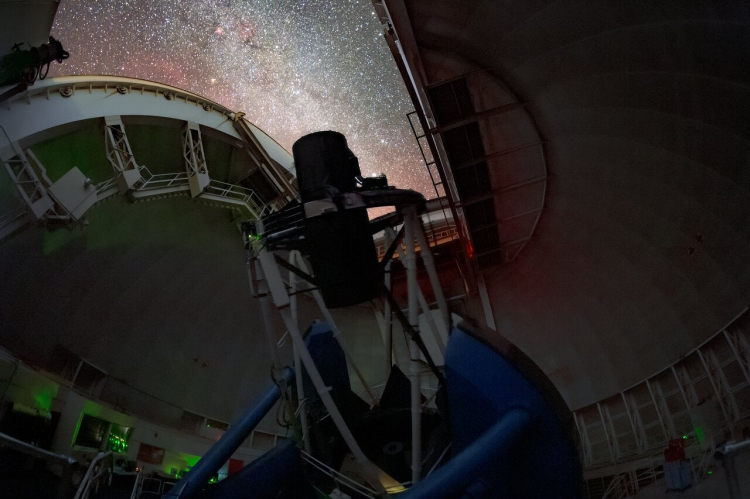Building off the first analyses of the largest 3D map of the universe released earlier this year, scientists working with the Dark Energy Spectroscopic Instrument (DESI) have pulled additional information from the map.
DESI is an international collaboration of more than 900 researchers from over 70 institutions around the world, including a strong presence at the University of Waterloo, and is managed by the U.S. Department of Energy's Lawrence Berkeley National Laboratory.
Waterloo's team is led by Dr. Will Percival, Director of the Waterloo Centre for Astrophysics (WCA) and co-Spokesperson for DESI, leading the international team of scientists analysing the DESI data. The team at Waterloo, which also includes Dr. Alex Krolewski, a postdoctoral fellow at the WCA, and former graduate student Siddhardha Penmetsa, worked to check for inconsistencies based on the way the spectra of the galaxies were taken.

"DESI measures 5000 spectra of galaxies at a time and using those spectra, we can figure out how far away the galaxies are from Earth," Krolewski says. "Our contribution to the analysis is making sure that our measurements of those galaxies are unbiased."
The team checked the data collected with DESI to measure variations in the likelihood of detecting good redshifts. Some DESI targets are unable to get good redshifts (because they are faint or observed under less-than-optimal conditions), but the team's work showed that these failures could be corrected for and had no impact on the cosmological analysis. This gives the team great assurance about the data.
"The way that we're measuring spectra is very robust which means we can continue to learn about the universe with great confidence in the output of DESI," Krolewski says.
The DESI researchers have now taken the map and modelled it to test theories of gravity. The data analysis measures how large structures (like groups of galaxies) in the universe are being pulled together. The rate at which structures are forming is consistent with Einstein's theory of general relativity.
The new results have come from analyzing the first year of data from DESI, which should span five years in total. The ongoing survey will provide us with more information than ever on how the universe is changing and why over the next few years.
"As we continue to get data from DESI, we are learning more and more about the cosmos," Percival says. "We are now working on data from years two and three and will have some astounding findings to share in the spring of 2025."
To learn more about the results, you can read the official release from DESI along with many of the papers released on the analysis from this stage.
The DESI collaboration is honoured to be permitted to conduct scientific research on I'oligam Du'ag (Kitt Peak), a mountain with particular significance to the Tohono O'odham Nation.









